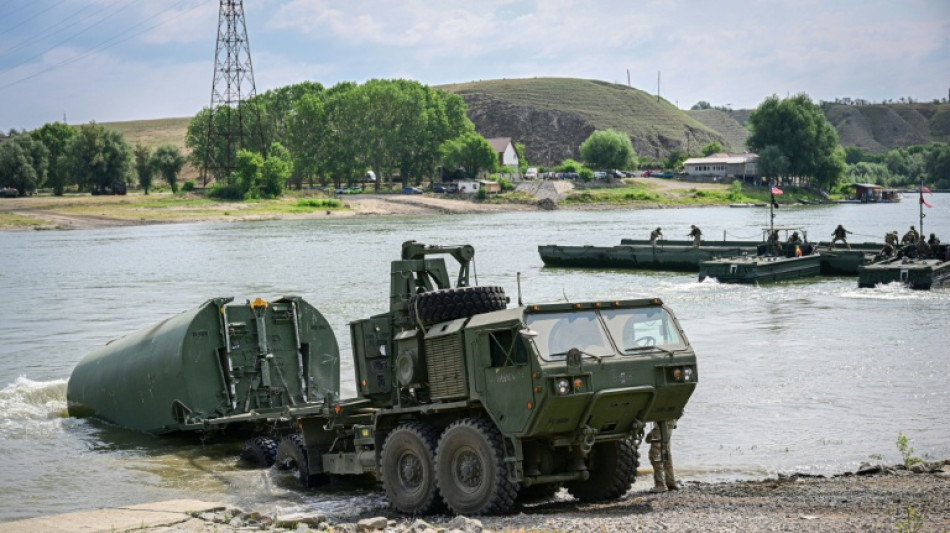
-
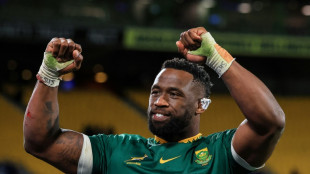 Kolisi warns 'resilient' Boks are braced for Puma mauling
Kolisi warns 'resilient' Boks are braced for Puma mauling
-
Fearing US invasion, Venezuela to hold emergency drills
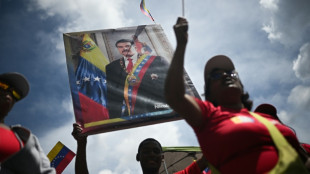
-
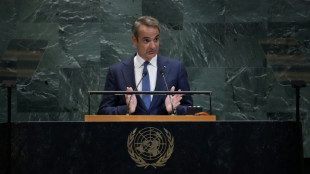 Greek PM warns Israel risks losing friends
Greek PM warns Israel risks losing friends
-
Pakistani PM appeals for India talks, hails Trump role
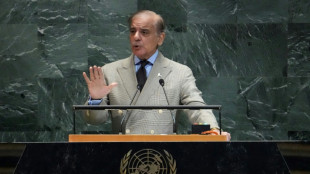
-
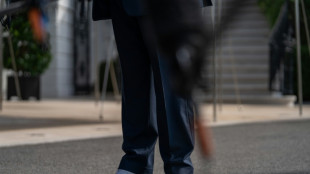 Trump aims to make America great again amid Ryder Cup woes
Trump aims to make America great again amid Ryder Cup woes
-
Trump arrives at Ryder Cup with US seeking comeback
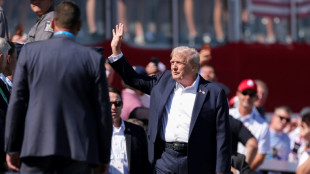
-
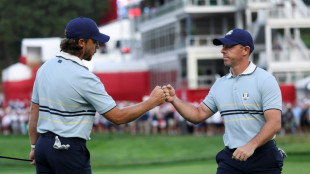 Europe grabs 3-1 lead as US seeks Trump boost at Ryder Cup
Europe grabs 3-1 lead as US seeks Trump boost at Ryder Cup
-
Lufthansa planning thousands of job cuts: sources
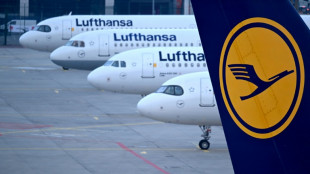
-
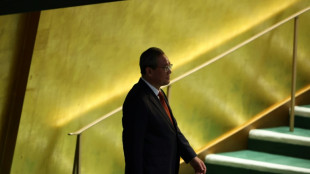 China at UN warns of return to 'Cold War mentality'
China at UN warns of return to 'Cold War mentality'
-
England great Alphonsi expects Canada to shine in Women's Rugby World Cup final

-
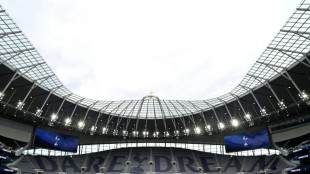 Tottenham reject interest in reported record £4.5bn sale
Tottenham reject interest in reported record £4.5bn sale
-
Man Utd boss Amorim admits uncertainty ahead of Brentford clash
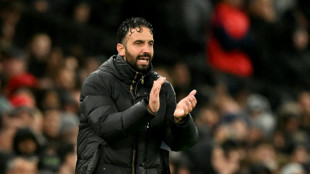
-
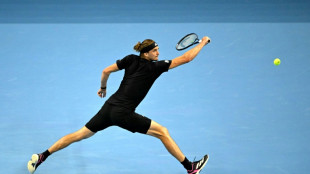 Zverev wins Beijing opener as Gauff launches title defence
Zverev wins Beijing opener as Gauff launches title defence
-
Barca duo Raphinha, Joan Garcia injured, out for PSG clash

-
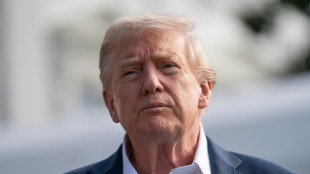 Trump hopes more opponents to be charged after 'dirty cop' Comey
Trump hopes more opponents to be charged after 'dirty cop' Comey
-
US Fed's preferred inflation gauge rises, with more cost pressures expected
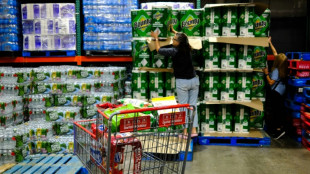
-
 Facebook, Instagram to offer paid ad-free UK subscriptions
Facebook, Instagram to offer paid ad-free UK subscriptions
-
Former UK PM Blair could lead transitional authority in Gaza: reports
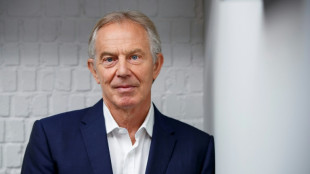
-
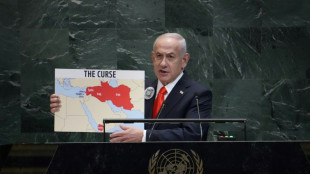 Netanyahu says Palestinian state would be 'national suicide' for Israel
Netanyahu says Palestinian state would be 'national suicide' for Israel
-
The nations and firms threatened by Trump's pharma tariffs
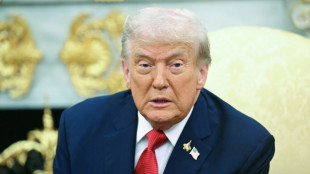
-
 Trailblazing rugby chief Griffin proud of 'incredible' strides for women's game
Trailblazing rugby chief Griffin proud of 'incredible' strides for women's game
-
Brother of Oasis stars denies rape, other charges

-
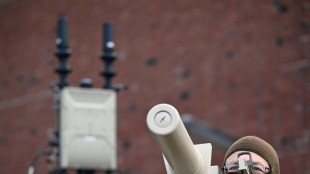 EU steps up 'drone wall' plans after Russian incursions
EU steps up 'drone wall' plans after Russian incursions
-
Kenyan jeans factory to fire workers as US deal expires
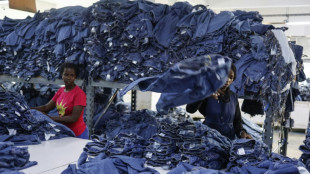
-
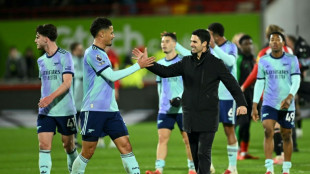 Arteta hails Saliba's impact as new Arsenal deal looms
Arteta hails Saliba's impact as new Arsenal deal looms
-
England's Jones channels grief in bid for Women's Rugby World Cup glory
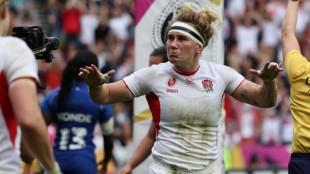
-
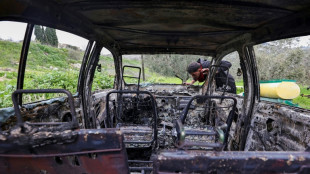 UN identifies 158 firms linked to Israeli settlements
UN identifies 158 firms linked to Israeli settlements
-
Canada's Patrick Watson channels dread into new 'Uh Oh' album
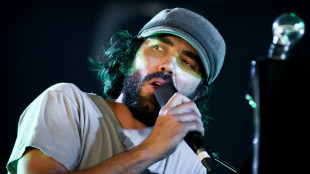
-
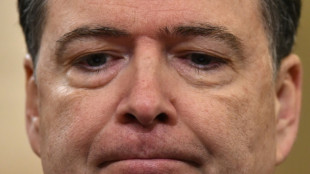 Trump brands indicted opponent Comey a 'dirty cop'
Trump brands indicted opponent Comey a 'dirty cop'
-
Walker an all-time great, says Guardiola ahead of Man City return
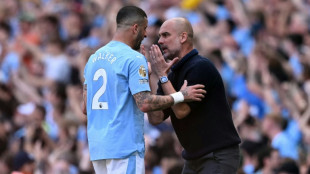
-
 Alonso warns against overconfidence before Madrid derby
Alonso warns against overconfidence before Madrid derby
-
Fritz says path to Grand Slam glory goes through Alcaraz, Sinner
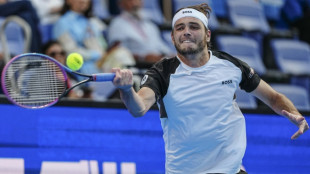
-
 UK court drops terror case against Kneecap rapper
UK court drops terror case against Kneecap rapper
-
UK's Starmer urges liberals to fight 'the lies' told by far right
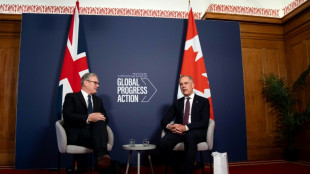
-
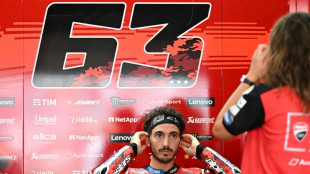 Bagnaia and Pennetta among first Winter Olympic torch carriers: organisers
Bagnaia and Pennetta among first Winter Olympic torch carriers: organisers
-
Sarkozy conviction exposes political divide in crisis-hit France
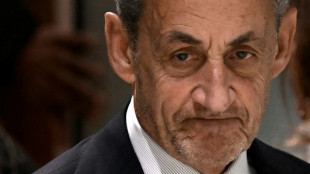
-
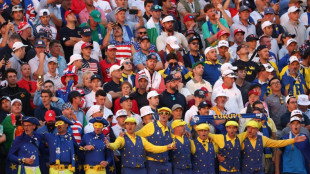 Ryder Cup begins in electric atmosphere at Bethpage Black
Ryder Cup begins in electric atmosphere at Bethpage Black
-
UK to launch digital ID scheme to curb illegal migration
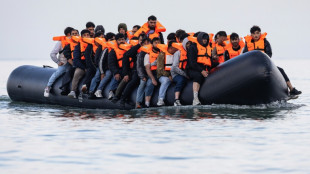
-
 Chelsea's Palmer sidelined with groin injury
Chelsea's Palmer sidelined with groin injury
-
India retires Soviet fighter jet after six decades
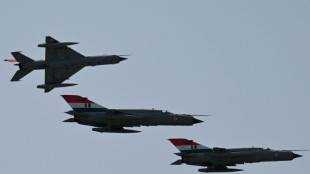
-
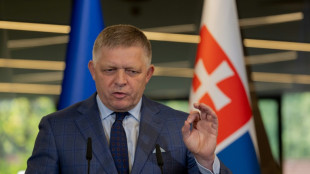 Slovak parliament approves anti-LGBTQ constitutional change
Slovak parliament approves anti-LGBTQ constitutional change
-
Train tragedy hunger striker captures hearts in Greece
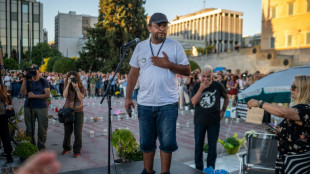
-
 I.Coast historic beachside town boasts new modern art museum
I.Coast historic beachside town boasts new modern art museum
-
PSG captain Marquinhos out with thigh injury

-
 UK court drops terror charge against Kneecap rapper
UK court drops terror charge against Kneecap rapper
-
Turkish Airlines inks big Boeing deal after Erdogan visits US
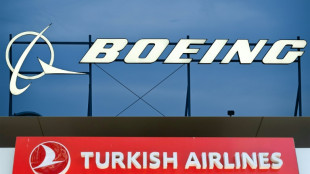
-
 Liverpool's Leoni faces year out after ACL injury on debut
Liverpool's Leoni faces year out after ACL injury on debut
-
'We are not afraid,' jailed Istanbul mayor tells court
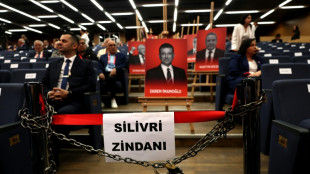
-
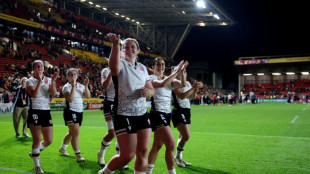 Canada's women tilt for World Cup thanks to 'incredible' crowdfunding
Canada's women tilt for World Cup thanks to 'incredible' crowdfunding
-
India retires 'flying coffin' Soviet fighter jet after six decades
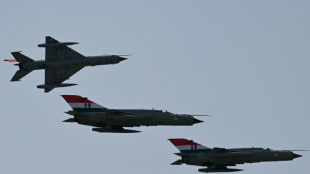

Spain pushes back against mooted 5% NATO spending goal
Spain is resisting US President Donald Trump's demands to hike defence spending to five percent of national output, potentially threatening NATO unity at a crucial alliance summit this month.
The European country ended 2024 as the NATO member that dedicated the smallest proportion of its annual economic output to defence, falling short of the two percent target set in 2014.
Faced with Trump's threats to withdraw US security guarantees from member states perceived as not pulling their weight, Spain has announced fresh spending to hit the two percent mark this year.
But Madrid is baulking at suggestions the target should rise to five percent as an aggressive Russia, whose invasion of Ukraine has stretched into a fourth year, menaces Europe.
With Germany and Poland already backing the new benchmark, Spain could find itself isolated among its allies at the June 24-25 NATO summit in The Hague.
"Many countries want five (percent), we respect that... but Spain will fulfil those objectives set for us," Defence Minister Margarita Robles said on the sidelines of a meeting of NATO counterparts in Brussels this month.
"What is really important is that Spain will meet the capacities and objectives" assigned by NATO and "we cannot set ourselves a percentage", she said.
For Felix Arteaga, a defence specialist at Madrid's Elcano Royal Institute, "internal political reasons" are determining the stance of the minority left-wing coalition government.
Socialist Prime Minister Pedro Sanchez faces a balancing act of aligning with NATO allies and cajoling his far-left junior coalition partner Sumar, which is hostile to increasing military spending.
He has not submitted to parliament the plans for new defence spending of more than 10 billion euros, sparking criticism from his parliamentary allies whose support is crucial for the government's viability.
The fragile coalition has wobbled in the past week after a corruption scandal implicating one of Sanchez's inner circle sparked a crisis within his Socialist party.
- 'Cultural' barriers -
In Spain, "high political fragmentation makes it difficult to reach deals similar to those of other countries" such as Germany, said Santiago Calvo, an economics professor at the Universidad de las Hesperides.
Calvo also pointed to "delicate" public finances, with Spain's debt one of the highest in the European Union at 103.5 percent of gross domestic product.
That figure has nonetheless receded in recent years, and continued strong economic performance should give the government "margin" to spend more, said Arteaga, who instead identified "cultural" hindrances.
The Iberian Peninsula's greater distance from Russia than eastern European countries like Poland "reduces concern and urgency... we do not feel threatened, we do not want to enter armed conflicts", Arteaga said.
"The government must explain to Spanish citizens the need to show solidarity" with countries in northern and eastern Europe, he said.
Ambiguity also surrounds the idea of investing five percent of GDP in defence.
NATO chief Mark Rutte has mentioned 3.5 percent of military spending in the traditional definition of the term by 2032, with the remaining 1.5 percent going to security in a broader sense, including border protection and cybersecurity.
At the NATO summit, "everything will come down to details" such as the flexibility of the definition of defence spending and the timeframe to achieve it, Arteaga predicted.
Robles said "Spain will not veto anything" at the summit, calling her country "a constructive ally".
L.Stucki--VB
